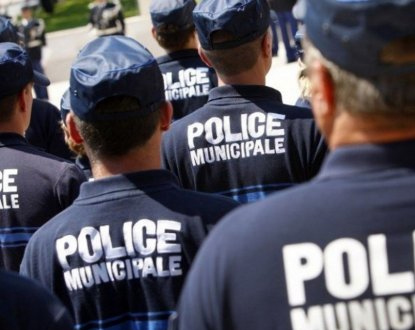Christophe Darmon, who has been in charge of the Departmental Intervention Company for 20 years and is now retired from the National Police, took on his new role as head of the Municipal Police this Wednesday.
This appointment had been announced some time ago and took place during a ceremonial event. A number of onlookers attended, surprised by this repetitive scenario.
It was also an opportunity for the Mayor of Nice to revisit his security policy, which is known for its dialectical stance towards the Minister of the Interior, accused of being regressive concerning law and order. However, on this occasion, he acknowledged that “it is primarily a prerogative of the State.”
Furthermore, he reminded that the municipal police of Nice is the largest in France in terms of personnel, resources (especially regarding new technologies), and, of course, results, while highlighting a comparison with that of the regional capital Marseille!
Addressing his new colleague, whom he will supervise both as mayor and security delegate, Christian Estrosi outlined the three operational priorities of his mission: proximity for deterring or intervening during offenses; reducing incivilities and working towards public peace and cleanliness in all areas, particularly in iconic places such as parks, gardens, and public transport; and providing psychological and administrative support for victims.
In short, these objectives demand total commitment, making Christoph Darmon’s task arduous, especially since, as we have previously written, the Mayor of Nice “loves this job,” as he has publicly stated (indeed, we suspected it!), and he retained the delegation following Benoît Kandel’s removal from his duties during last Monday’s City Council meeting.
Gone are the days of angelicism that justified everything, understanding that repression is a false solution, taking into account that authority cannot just be what each of us holds over others. Ultimately, can we understand that authority without education and pedagogy is a short-sighted response and that personal security and freedom are not opposed to each other but rather complementary and indispensable?


